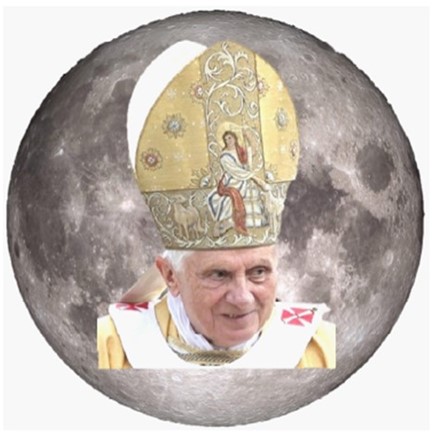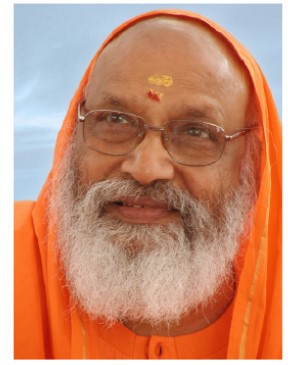Kollengode S Venkataraman
He stood firmly on the Catholic Church’s orthodoxy, even as the ground he was standing on was tectonically moving within and beyond his church. His interactions with non-Catholic faiths were equally doctrinaire.
On December 31, Pope Emeritus Benedict XVI, 95, died in the Vatican. He became Pope in April 2005. In 2013 Benedict resigned from the Papal Office citing “old age and lack of stamina” as the reasons. Before becoming pope, as Cardinal Joseph Ratzinger, he was a cerebral orthodox Catholic theologian. Pope John Paul II appointed him in 1981 as the Prefect (chief officer) of the Congregation for the Doctrine of the Faith (CDF), known in the 16th century as the Roman Inquisition, with its notorious history in Europe.
The Inquisition in Europe also had an Indian version in Goa with the horrific details available in the Catholic church records and other sources of that era in the Konkan region. The Goan inquisition (imposed by the Portuguese king on the recommendation of Francis Xavier) banned the sale of books in the Konkani, Marathi, Sanskrit and Arabic languages. The use of Konkani was forbidden in the Portuguese colony of Goa.
The Christian missionaries in Goa called the Hindus ‘uncultured’ and ‘savages,’ who worshipped black idols ‘resembling demons’; Hindus were forbidden from holding public office, inheriting their father’s property and testifying as witnesses in courts. If a Hindu child was deemed to be an orphan by the colonialists, the child was taken by the Society of Jesus (founded in 1540 by Ignatius Loyola, Francis Xavier, and others) and made to change his religion. Hindus couldn’t be clerks in village offices. In 1567, a law banning Christians from employing Hindus in the colony was introduced. Chock-full information is available on the Internet and on YouTube.
This is the history of the Congregation for the Doctrine of the Faith that Ratzinger headed as the appointee of Pope John Paul II.
Cardinal Ratzinger’s appointment as the prefect for CDF was for his intellectual acuity and orthodoxy on doctrinal matters. Before Cardinal Ratzinger became Pope Benedict XVI, the Catholic Church in Europe and North America was in turmoil of its own making: in the 1980s, Catholic laity in their 40s and 50s in North America and Europe were outing scores of Catholic priests for sexually abusing them when they were young boys. The pedophilia within the church and homosexuality among priests was deeply embarrassing to the Catholic Church.
What made this worse was the fact that the Catholic hierarchy including archbishops, and even the Vatican – with Ratzinger as the Prefect of the Congregation for the Doctrine of the Faith — was aware of this problem. The Church covered it up without punishing the erring priests. Eventually the scandal exploded in the open with many dioceses in the US filing for bankruptcy protection against lawsuits by their own laity. The moral bankruptcy preceded the financial bankruptcy.
Given this background, when Pope Emeritus Benedict died on December 31, 2022, the media headlines blared, summarizing the complexity of Benedict’s papal term:
The New York Times: Benedict was criticized for his handling of the church’s sex abuse scandal; From Germans, an outpouring of mixed emotions at Benedict XVI’s death; Benedict leaves behind a conflicted legacy on clerical sexual abuse.
Washington Post: Pope Benedict shows us how the Catholic Church went so terribly off course
The Guardian from the UK: “During Pope Benedict’s tenure as the allegations of clerical sexual abuse and its cover up began to surface, his critics said he failed to grasp the gravity of the crimes and the scale of the crisis, which reached a peak several years after he was elected pope.”
Thus, the intellectually sharp and conservative Cardinal Ratzinger, who later became Pope Benedict XVI, was standing firm on the orthodoxy of the church, even as the ground on which he stood was tectonically shaking. We need to see Pope Benedict’s resignation from the papal office against this background of the pedophilia and sex scandals exploding in North America, Europe, even in South and Latin America.
Why the long intro to this article? Well, if Ratzinger and Pope Benedict was this rigid within the Church, why should his attitude towards non-Abrahamic faiths be any different? Towards the theistic, polymorphic, and even agnostic approaches to the Divine Ground outside Christendom?
In the 1990s before the ushering of the new millennia in 2000, the United Nations wanted to produce a declaration on religious amity. It instituted a committee of all major religions. A draft resolution was circulated among the leaders from diverse faiths — Judaism, Christianity’s many branches, Islam, Buddhism, Zoroastrianism, Jainism, Hinduism, Sikhism, and others. Cardinal Ratzinger led the Vatican delegation.
While finalizing the draft, Swami Dayananda Saraswati made his case that the resolution should replace “tolerance” among the religions with the phrase “mutual respect.” The Swami’s point was that “tolerance” may signify no more than the permission given by the adherents of a dominant religion for other religions to exist. An example given was, when we are invited as guests, simply to be “tolerated” by our host is an insult. We want to be treated with respect as equals. See here Rajiv Malhotra’s article.
Cardinal Ratzinger objected to replacing “tolerance” with “mutual respect.” As Rajiv Malhotra of Infinity Foundation noted then, “If religions deemed ‘heathen’ were to be officially respected, there would be no justification for converting their adherents to Christianity.”
Swami Dayananda Saraswati was under pressure to relent. But the Swami persisted that it was time for the non-Abrahamic religions to be accepted as equals and not just tolerated by the three “religions of the book.” At the last minute, the Vatican conceded, and the resolution declared that all religions would agree to respect one another. This was big news and was broadcast widely among the non-Abrahamic religions.
However, within a month, the Vatican backtracked saying that while “followers of other religions can receive divine grace, it is also certain that objectively speaking, they are in a gravely deficient situation in comparison with those who, in the Church, have the fullness of the means of salvation.”
Even as people from all over the world poured in their messages praising Emeritus Pope Benedict’s death, I feel comfortable being an insignificant contrarian, given my roots within the polymorphic faith called Hinduism and Gautama Buddha’s agnostic approach to understand our Divine Ground. ∎


